
Shumen: The Heart of Bulgaria's History and Culture
Shumen is a charming city in northeastern Bulgaria, rich in history and culture. Nestled at the foot of the Shumen Plateau, this city offers a unique blend of ancient ruins, lush greenery, and vibrant modern life. It is the perfect destination for history buffs, nature lovers, and those looking to experience the true spirit of Bulgaria. Shumen is home to the Shumen Fortress, a must-see historical site that dates back to the early Middle Ages. The fortress offers breathtaking views of the surrounding area and a glimpse into Bulgaria's storied past. Another iconic landmark is the Monument to 1300 Years of Bulgaria, which stands tall on a hill and offers panoramic views of the city. In the city center, you can explore the Regional History Museum, which houses artifacts from various periods of Bulgarian history. The Tombul Mosque, one of the largest mosques in the Balkans, is also worth a visit for its stunning architecture and serene atmosphere. For those who love nature, the Shumen Plateau Nature Park offers numerous hiking trails and picnic spots. Shumen is not just about history and nature; it also has a lively cultural scene. Throughout the year, the city hosts various festivals, concerts, and events that celebrate Bulgarian traditions and contemporary arts. The local cuisine is another highlight, with many restaurants offering delicious Bulgarian dishes made from fresh, locally-sourced ingredients. Whether you're exploring ancient ruins, hiking through scenic landscapes, or enjoying local festivals, Shumen promises an enriching and memorable experience.
Local tips in Shumen
- Visit the Shumen Fortress early in the morning to avoid crowds and enjoy the best views.
- Wear comfortable shoes as the city has many cobblestone streets and hiking trails.
- Don't miss the local festivals and events, which offer a glimpse into Bulgarian culture and traditions.
- Try local dishes like banitsa and kavarma at traditional restaurants for an authentic culinary experience.
- If you're visiting in summer, bring a hat and sunscreen as it can get quite hot.
Shumen: The Heart of Bulgaria's History and Culture
Shumen is a charming city in northeastern Bulgaria, rich in history and culture. Nestled at the foot of the Shumen Plateau, this city offers a unique blend of ancient ruins, lush greenery, and vibrant modern life. It is the perfect destination for history buffs, nature lovers, and those looking to experience the true spirit of Bulgaria. Shumen is home to the Shumen Fortress, a must-see historical site that dates back to the early Middle Ages. The fortress offers breathtaking views of the surrounding area and a glimpse into Bulgaria's storied past. Another iconic landmark is the Monument to 1300 Years of Bulgaria, which stands tall on a hill and offers panoramic views of the city. In the city center, you can explore the Regional History Museum, which houses artifacts from various periods of Bulgarian history. The Tombul Mosque, one of the largest mosques in the Balkans, is also worth a visit for its stunning architecture and serene atmosphere. For those who love nature, the Shumen Plateau Nature Park offers numerous hiking trails and picnic spots. Shumen is not just about history and nature; it also has a lively cultural scene. Throughout the year, the city hosts various festivals, concerts, and events that celebrate Bulgarian traditions and contemporary arts. The local cuisine is another highlight, with many restaurants offering delicious Bulgarian dishes made from fresh, locally-sourced ingredients. Whether you're exploring ancient ruins, hiking through scenic landscapes, or enjoying local festivals, Shumen promises an enriching and memorable experience.
When is the best time to go to Shumen?
Iconic landmarks you can’t miss
Founders of the Bulgarian State Monument
A colossal monument near Shumen honoring the founders and early leaders of Bulgaria, with stunning views and historical insights.
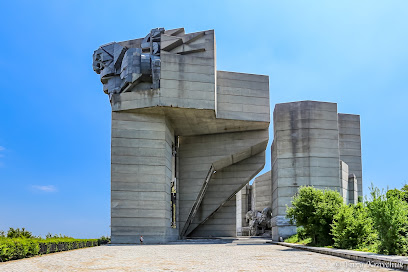
Historical and archaeological reserve Shumen Fortress
Discover the historic Shumen Fortress, an archaeological gem in Bulgaria offering stunning views and a glimpse into the rich tapestry of the past.
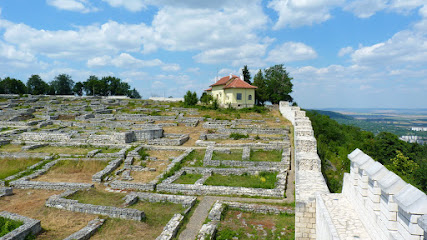
Park Kyoshkovete
Explore the serene beauty of Park Kyoshkovete in Shumen, a lush haven for nature lovers and a perfect spot for relaxation and recreation.
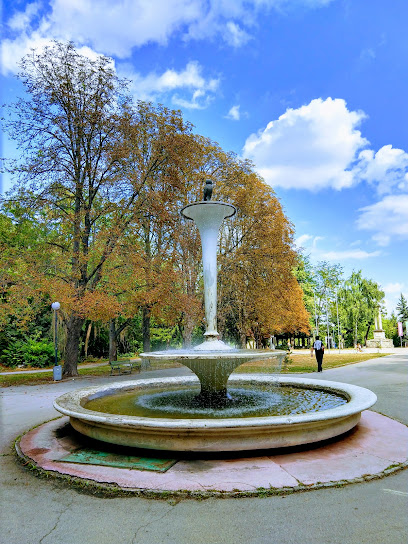
Historical Museum
Explore Bulgaria's rich history at the Historical Museum of Shumen, where captivating artifacts and engaging exhibits bring the past to life.
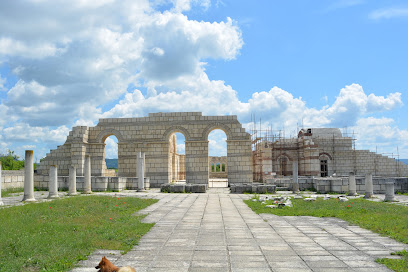
Biserna Cave (Zandana)
Discover the stunning geological formations and rich biodiversity of Biserna Cave in Bulgaria's Shumen Plateau Nature Park.
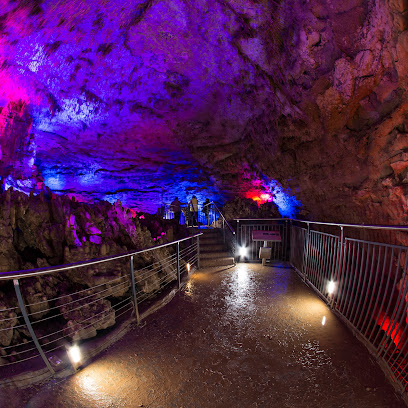
Kurshun Faucet
Discover the historical charm of the Kurshun Faucet, an iconic landmark in Shumen, Bulgaria, blending rich history with stunning architecture.
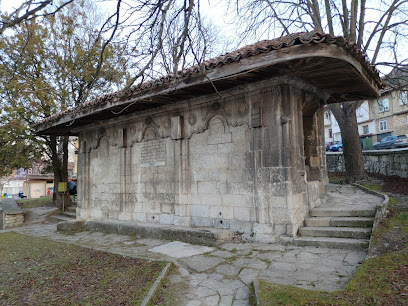
Shumen Plateau Nature Park
Explore the breathtaking beauty of Shumen Plateau Nature Park, a serene escape filled with lush landscapes and rich biodiversity in Bulgaria.
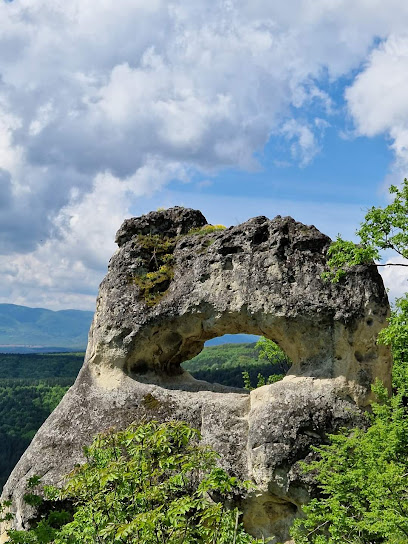
Panayot Volov House Museum
Explore the Panayot Volov House Museum in Shumen for a deep dive into Bulgaria's national revival and rich cultural heritage.
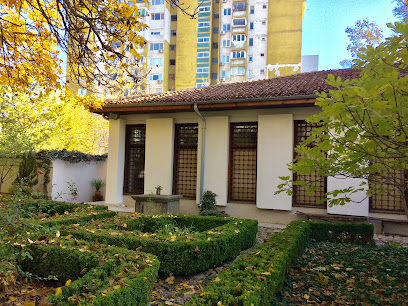
Clock Tower in Shumen
Discover Shumen's Clock Tower: A historic landmark offering architectural beauty, cultural insights, and panoramic city views since 1740.
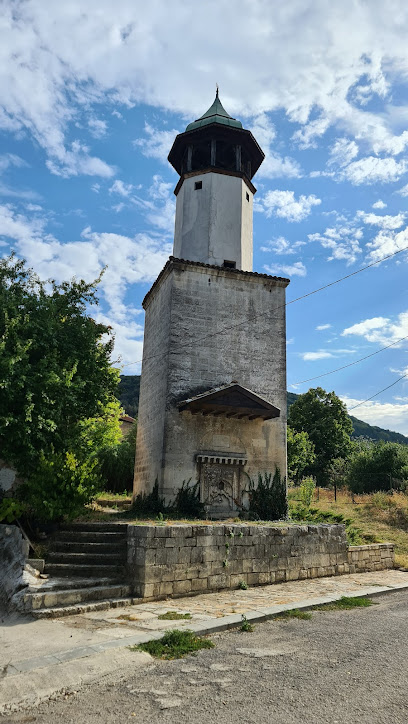
Jewish Cemetery Shumen
Explore the serene Jewish Cemetery in Shumen, a historical site reflecting the rich cultural heritage of Bulgaria's Jewish community.
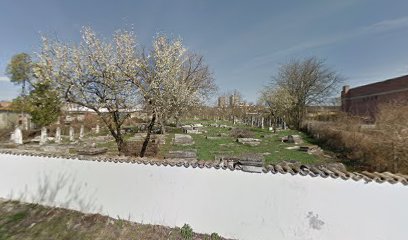
Беш Тепе Табия
Explore the historical richness and breathtaking views of Beş Tepe Tabia, a captivating landmark in Shumen, Bulgaria, ideal for history and nature lovers.

Unmissable attractions to see
Исторически парк - Historical Park
Explore the enchanting Historical Park in Neofit Rilski, blending thrilling entertainment with rich Bulgarian culture and history.
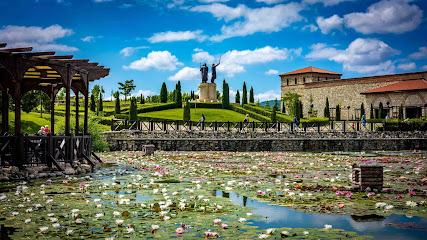
Madara Horseman
Discover the Madara Horseman, a UNESCO World Heritage Site and an iconic symbol of Bulgaria's historical and cultural heritage.
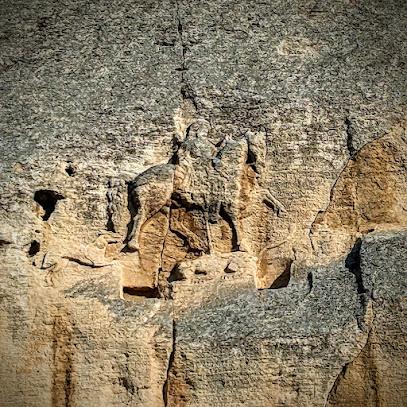
Founders of the Bulgarian State Monument
Explore the Founders of the Bulgarian State Monument in Shumen, a stunning tribute to Bulgaria's history and culture with breathtaking views.
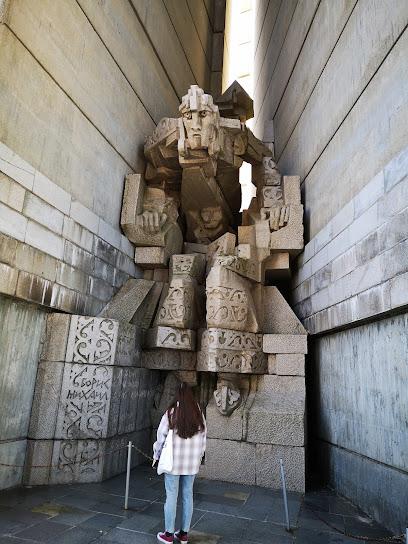
City Garden
Discover the serene beauty of City Garden in Shumen, a perfect park for relaxation, nature walks, and cultural experiences amidst lush landscapes.
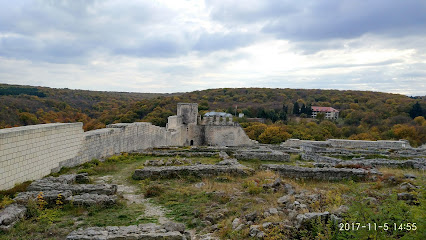
Preslav Fortress
Explore Preslav Fortress: A Historical Gem in Veliki Preslav, Bulgaria, Showcasing Rich Heritage and Stunning Views.
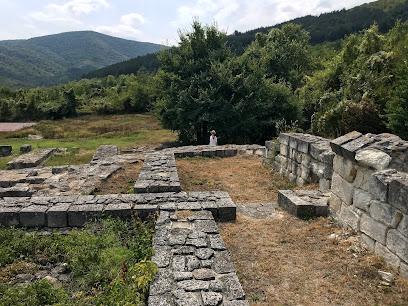
Pliska Museum of National History and Archaeology
Explore Bulgaria's ancient history at the Pliska Museum of National History and Archaeology, home to fascinating artifacts and rich cultural heritage.
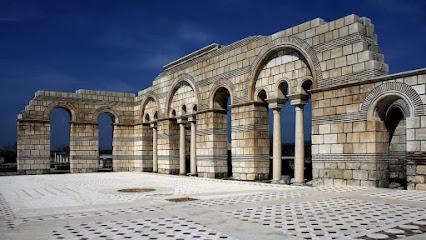
Park Kyoshkovete
Explore the stunning landscapes and tranquil atmosphere of Park Kyoshkovete, a must-visit destination in Shumen, Bulgaria.
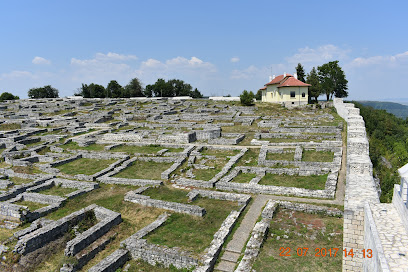
Historical Museum
Discover Bulgaria's rich history at the Historical Museum in Shumen, featuring captivating exhibits and cultural treasures that bring the past to life.
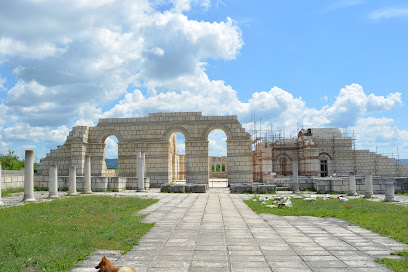
Biserna Cave (Zandana)
Explore the mystical Biserna Cave in the Shumen Plateau, a stunning natural wonder featuring breathtaking stalactite formations and rich geological history.
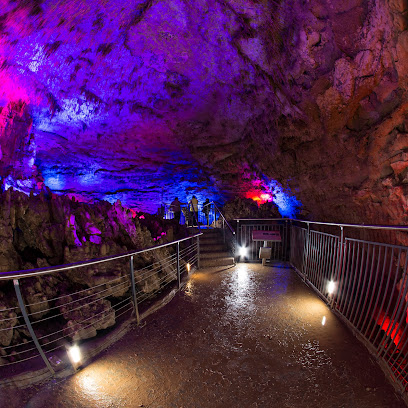
Kurshun Faucet
Discover the historical charm of the Kurshun Faucet, an iconic landmark in Shumen, Bulgaria, blending rich history with stunning architecture.
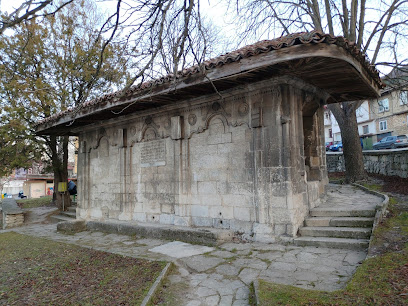
Shumen Plateau Nature Park
Explore the natural wonders and historical treasures of Shumen Plateau Nature Park, a breathtaking nature preserve in Bulgaria that captivates all who visit.
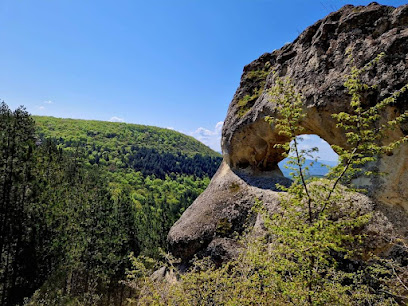
The Shumen Plato
Explore the enchanting Shumen Plato in Bulgaria – a natural preserve with breathtaking landscapes, rich biodiversity, and outdoor adventures.
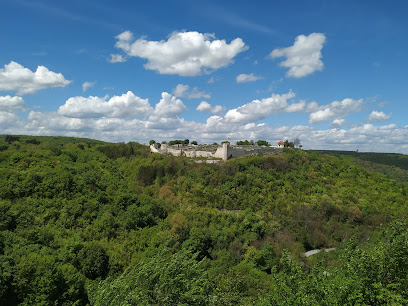
Museum Pancho Vladigerov
Discover the life and music of Pancho Vladigerov, Bulgaria's celebrated composer, in his Shumen museum.
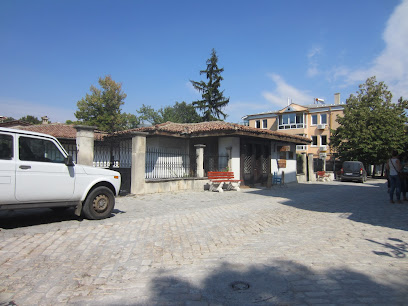
Panayot Volov House Museum
Explore the life of a Bulgarian revolutionary in his beautifully preserved 19th-century home in Shumen.
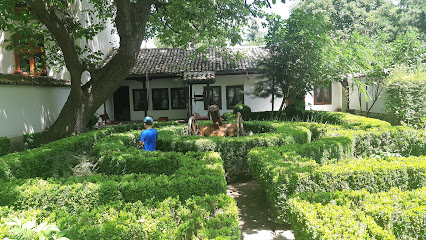
Clock Tower in Shumen
Discover the Clock Tower in Shumen, a historical landmark that showcases Bulgaria's architectural beauty and rich cultural history.
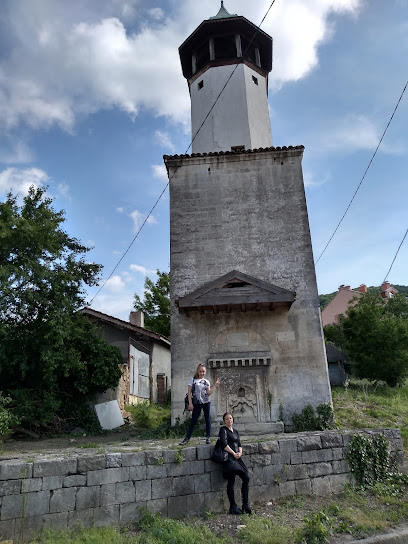
Essential places to dine
Barbarossa Beach Club
Experience exquisite dining at Barbarossa Beach Club in Shumen - where culinary delights meet breathtaking seaside views.
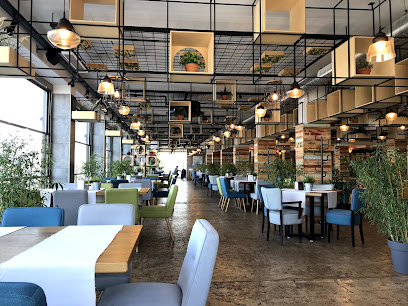
Primo Bar & Grill
Discover the flavors of Bulgaria at Primo Bar & Grill in Shumen – where tradition meets modern cuisine.
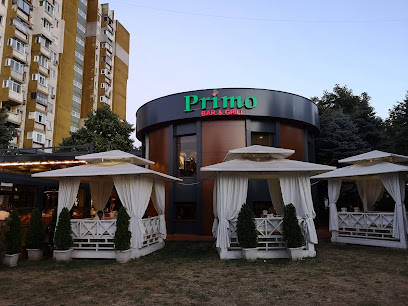
Popsheytanov's House
Discover the essence of Bulgarian cuisine at Popsheytanov's House in Shumen - where tradition meets taste.
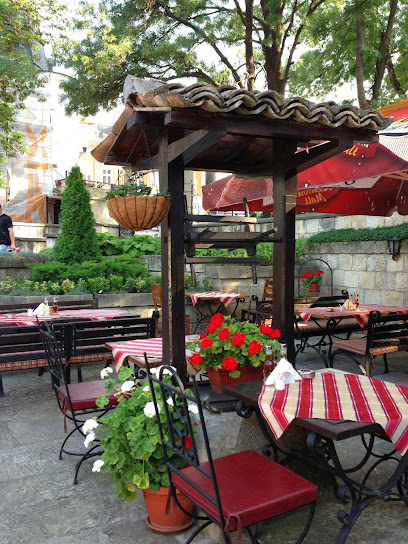
Vienna garden
Explore culinary delights amidst nature's beauty at Vienna Garden in Shumen – where every meal is a feast for your senses.
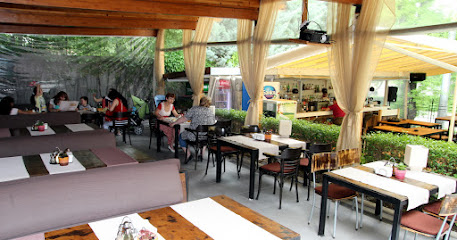
Otto Pizza Napoletana
Discover the rich flavors of Italy at Otto Pizza Napoletana in Shumen – where authentic pizza meets delightful ambiance.
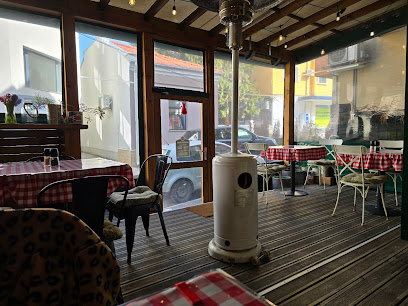
Voyage Restaurant
Experience the best fast food at Voyage Restaurant in Shumen - where quality meets convenience in every bite.
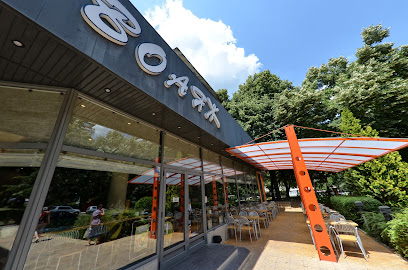
Alisa
Experience authentic Bulgarian cuisine at Alisa in Shumen - where local flavors meet international culinary artistry.
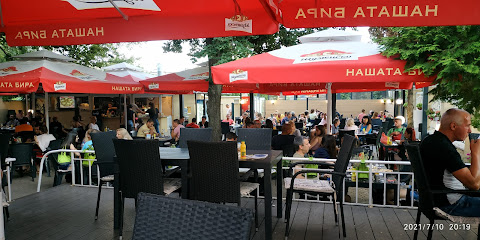
Hotel Minaliya Vek
Experience authentic Bulgarian cuisine and cozy accommodations at Hotel Minaliya Vek in the heart of Shumen.
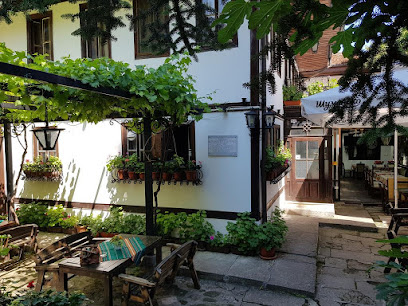
Tchiflika Tavern
Experience authentic Bulgarian cuisine at Tchiflika Tavern in Shumen – where tradition meets taste.
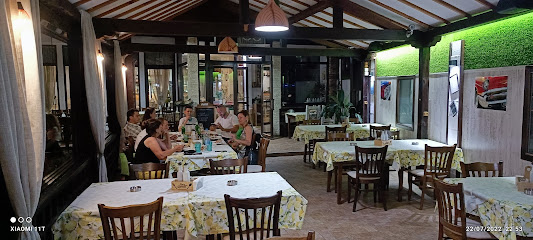
Green Garden
Experience authentic Bulgarian cuisine at Green Garden in Shumen - where every meal is a celebration of local flavors.
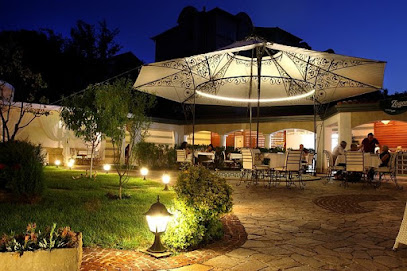
Tavern Thrace
Discover the essence of Bulgarian gastronomy at Tavern Thrace - a cozy restaurant serving traditional dishes in Shumen.
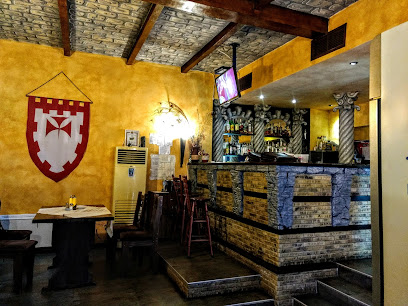
Choli BBQ Restaurant
Experience authentic Bulgarian barbecue at Choli BBQ Restaurant, where delicious flavors meet a warm and inviting atmosphere.
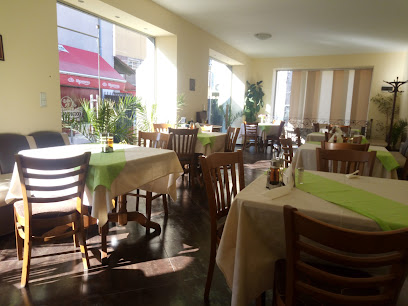
V.I.P. club
Discover the vibrant culinary scene at V.I.P. Club in Shumen, where diverse flavors meet an inviting atmosphere for an unforgettable dining experience.
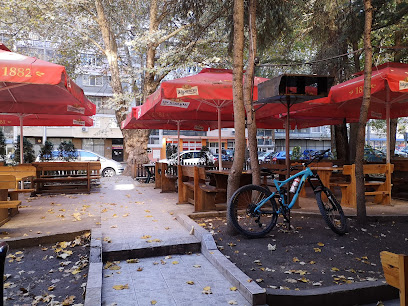
Hotel Contessa
Experience the best of Bulgarian hospitality at Hotel Contessa - where gourmet dining meets cozy accommodations in the heart of Shumen.
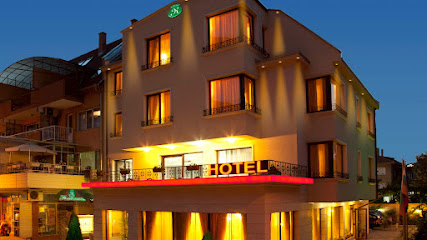
Tavern Oreha
Experience authentic Bulgarian cuisine at Tavern Oreha in Shumen - where every dish tells a story of tradition and flavor.
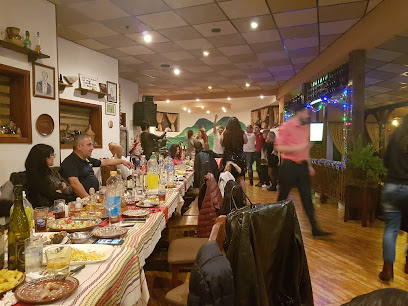
Markets, malls and hidden boutiques
Kaufland Shumen-Thrace
Discover local flavors and convenient shopping at Kaufland Shumen-Thrace, the ultimate supermarket destination in Bulgaria.

Technopolis Shumen
Discover the latest in technology and home appliances at Technopolis Shumen, the ultimate destination for tech enthusiasts in Northern Bulgaria.
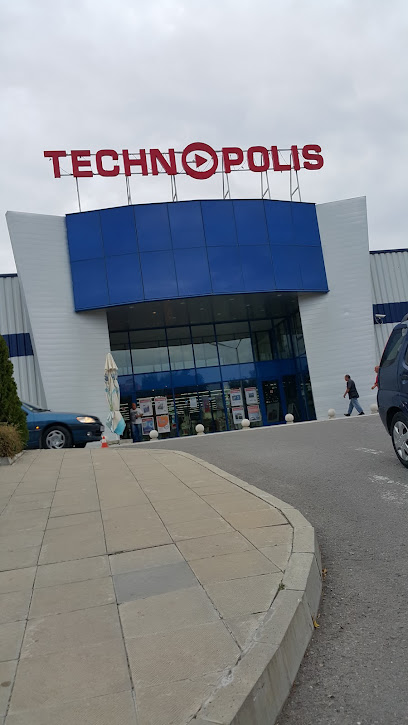
TeMax
Discover TeMax in Shumen, Bulgaria for a wide range of quality building materials and expert assistance for all your construction projects.
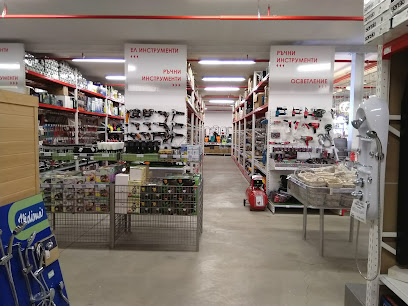
City Center Shumen
Explore City Center Shumen, a vibrant shopping mall featuring local crafts, unique finds, and a lively atmosphere in the heart of Shumen.
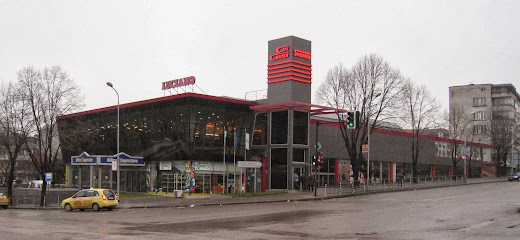
Dress4less Шумен 1
Explore Dress4less in Shumen for stylish shoes, trendy clothing, and quality sportswear that enhance your travel wardrobe.

Retail Park Arena - Shumen
Discover a diverse shopping experience at Retail Park Arena in Shumen, featuring a wide range of stores and dining options for all tastes.
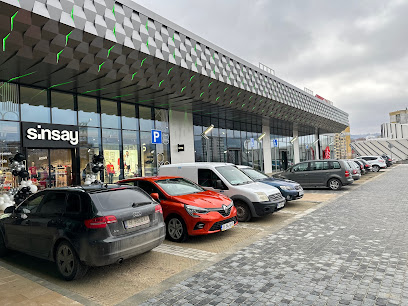
Bookshop Pegas
Explore the enchanting Bookshop Pegas in Shumen, a sanctuary for book lovers filled with diverse literary treasures.
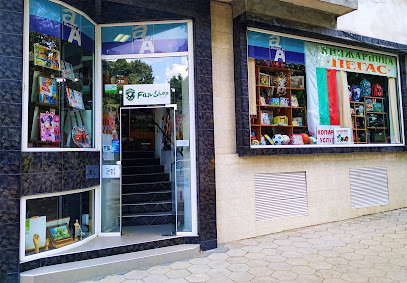
Humana second hand shop
Explore sustainable fashion at Humana Second Hand Shop in Shumen, where every piece tells a story and conscious shopping is celebrated.
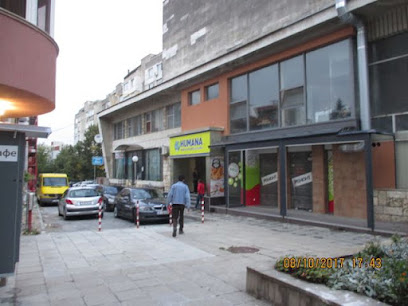
Dress4less Shumen 2
Explore Dress4less Shumen for top-notch sporting goods, stylish apparel, and footwear in a welcoming atmosphere perfect for all sports enthusiasts.

ИТТ България ООД
Discover the charm of local shopping at ITT Bulgaria OOD in Shumen, where culture meets commerce in a delightful atmosphere.
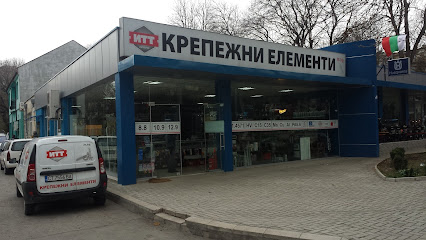
NEW YORKER
Explore NEW YORKER in Shumen for the latest in fashion with a vast selection of clothing and accessories for all ages and styles.

shop TIP-TOP
Shop TIP-TOP in Shumen: Your one-stop destination for quality home goods and unique souvenirs.
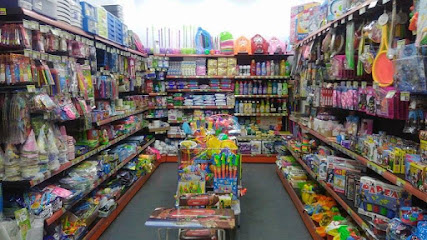
Магазин Adell - бижута и часовници
Explore elegance at Adell Jewelry and Watch Store in Shumen, offering exquisite jewelry, timepieces, and personalized services in a charming atmosphere.

my Shop STOP
Explore My Shop STOP in Shumen for quality shopping and unique local finds in a vibrant atmosphere.
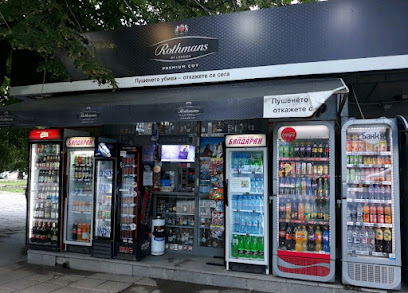
sinsay
Explore trendy fashion at Sinsay in Shumen, where style meets affordability. Your perfect shopping destination awaits!
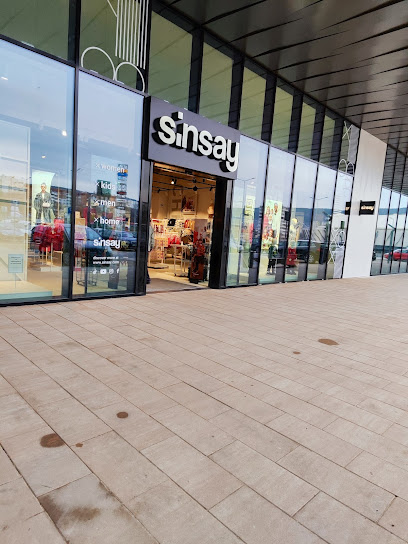
Essential bars & hidden hideouts
Barbarossa Beach Club
Discover the culinary delights of Barbarossa Beach Club, where exquisite flavors meet breathtaking beach views in Shumen.
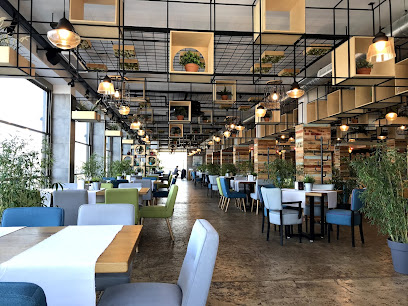
Primo Bar & Grill
Discover a delightful blend of traditional Bulgarian flavors and modern cuisine at Primo Bar & Grill in Shumen, perfect for a memorable dining experience.
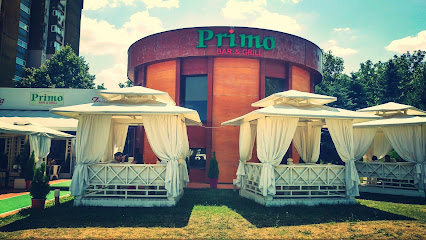
BACARDI CLUB
Discover the energetic vibe of Bacardi Club in Shumen, Bulgaria, where delightful drinks and lively entertainment await.
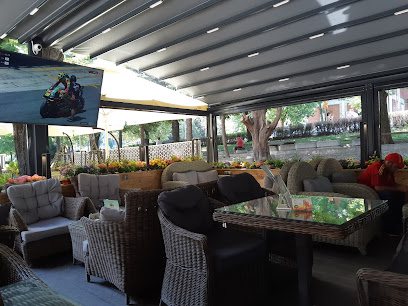
Vienna garden
Experience the serenity and culinary delights at Vienna Garden in Shumen, where local flavors meet a picturesque setting.
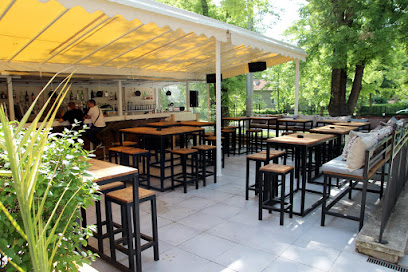
Zino Club
Experience the vibrant nightlife at Zino Club in Shumen, Bulgaria, with live music, exquisite cocktails, and an atmosphere that never sleeps.
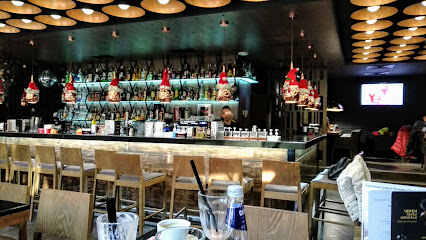
Arizona Lounge
Experience the lively ambiance and diverse drink selection at Arizona Lounge, the go-to bar in Shumen for relaxation and socializing.
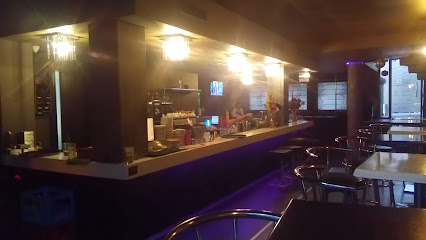
PM grill and pizza
Experience delicious local and international cuisines at PM Grill and Pizza in Shumen, where great taste meets a warm and inviting atmosphere.
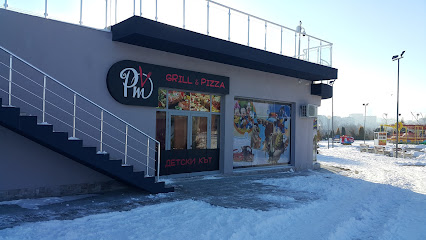
Bareto Coffee and Cocktails Club
Discover a vibrant atmosphere at Bareto Coffee and Cocktails Club in Shumen, where exquisite coffees and cocktails await in a cozy setting.
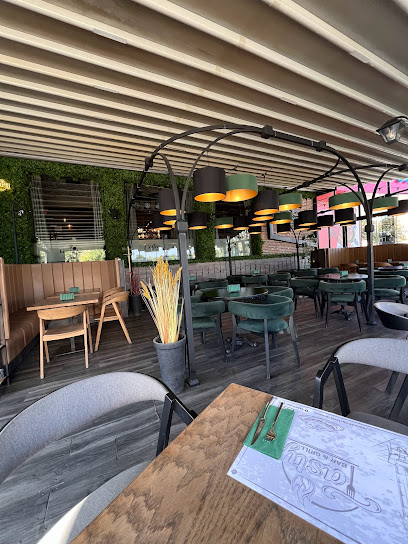
Restaurant Manastira
Experience the authentic taste of Bulgaria at Restaurant Manastira, where every meal is a celebration of local flavors and traditions.
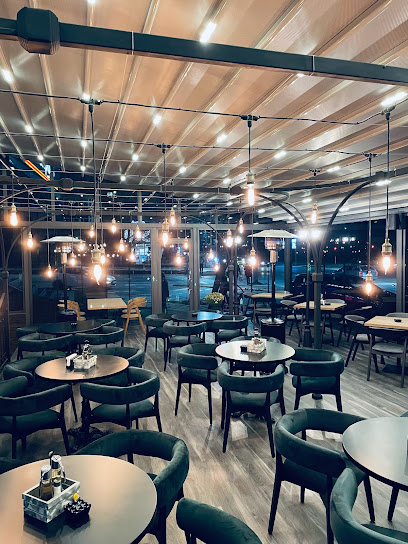
Централ бар и вечеря
Discover the rich flavors of Bulgaria at Централ бар и вечеря in Shumen, where every meal is a celebration of local culinary traditions.
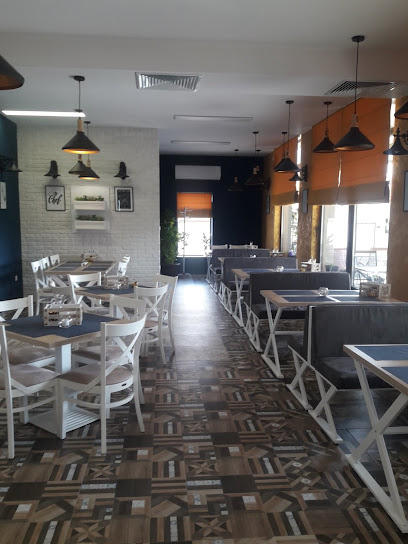
Cafe Club Retro
Experience the nostalgic charm and vibrant atmosphere of Cafe Club Retro in Shumen, where every sip tells a story.
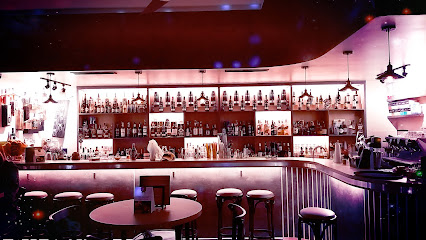
Asteri - bar & grill
Discover the flavors of Bulgaria at Asteri Bar & Grill in Divdiyadovo, a cozy spot for delicious grills and local dishes.
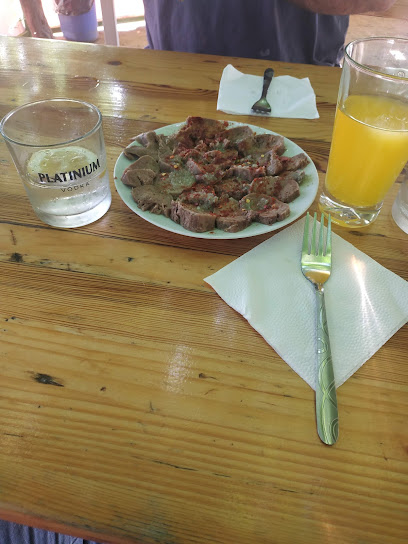
L’Olivo Bar & Dinner
Discover Mediterranean flavors at L’Olivo Bar & Dinner, a cozy restaurant in Shumen offering a delightful culinary experience in a charming setting.
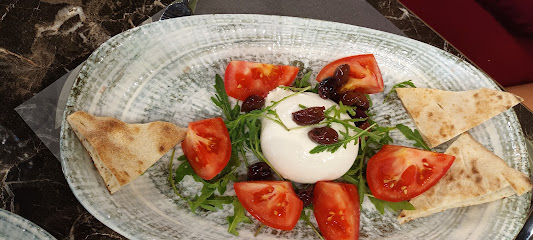
Piano Bar C'est La Vie
Discover the lively nightlife at Piano Bar C'est La Vie in Shumen, where live music and delicious cocktails create unforgettable memories.
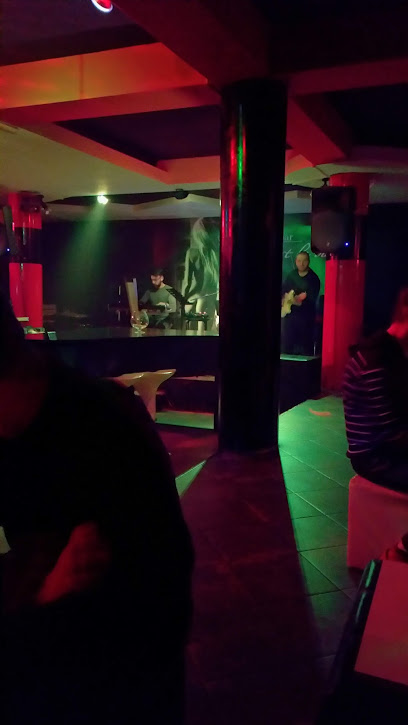
Wine Bar & Coffee
Experience the finest wines and aromatic coffees at Shumen's charming Wine Bar & Coffee, a perfect retreat for relaxation and indulgence.
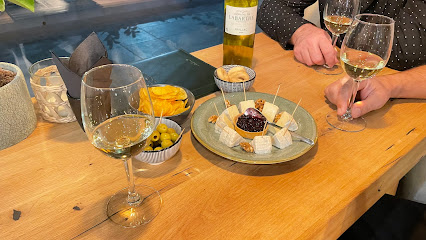
Local Phrases
-
- HelloЗдравей
[Zdravey] - GoodbyeДовиждане
[Dovizhdane] - YesДа
[Da] - NoНе
[Ne] - Please/You're welcomeМоля
[Molya] - Thank youБлагодаря
[Blagodarya] - Excuse me/SorryИзвинявайте
[Izvinyavayte] - How are you?Как си?
[Kak si?] - Fine. And you?Добре. А ти?
[Dobre. A ti?] - Do you speak English?Говориш ли английски?
[Govorish li angliyski?] - I don't understandНе разбирам
[Ne razbiram]
- HelloЗдравей
-
- I'd like to see the menu, pleaseБих искал да видя менюто, моля
[Bih iskal da vida menyuto, molya] - I don't eat meatНе ям месо
[Ne yam meso] - Cheers!На здраве!
[Na zdrave!] - I would like to pay, pleaseБих искал да платя, моля
[Bih iskal da platya, molya]
- I'd like to see the menu, pleaseБих искал да видя менюто, моля
-
- Help!Помощ!
[Pomosht!] - Go away!Изчезвай!
[Izchezhvay!] - Call the Police!Обадете се на полицията!
[Ovadete se na politsiyata!] - Call a doctor!Обадете се на лекар!
[Ovadete se na lekar!] - I'm lostЗагубил съм се
[Zagubil sym se] - I'm illБолен съм
[Bolen sym]
- Help!Помощ!
-
- I'd like to buy...Бих искал да купя...
[Bih iskal da kupya...] - I'm just lookingСамо разглеждам
[Samo razglezhdam] - How much is it?Колко струва?
[Kolko struva?] - That's too expensiveТова е твърде скъпо
[Tova e tvurde skapo] - Can you lower the price?Можете ли да намалите цената?
[Mozhete li da namalite tsenata?]
- I'd like to buy...Бих искал да купя...
-
- What time is it?Колко е часът?
[Kolko e chasat?] - It's one o'clockЕдин час
[Edin chas] - Half past (10)Половина след (10)
[Polovina sled (10)] - MorningСутрин
[Sutrin] - AfternoonСледобед
[Sledobed] - EveningВечер
[Vecher] - YesterdayВчера
[Vchera] - TodayДнес
[Dnes] - TomorrowУтре
[Utre] - 1едно
[edno] - 2две
[dve] - 3три
[tri] - 4четири
[chetiri] - 5пет
[pet] - 6шест
[shest] - 7седем
[sedem] - 8осем
[osem] - 9девет
[devet] - 10десет
[deset]
- What time is it?Колко е часът?
-
- Where's a/the...?Къде е...
[Kade e...] - What's the address?Какъв е адресът?
[Kakav e adresat?] - Can you show me (on the map)?Можете ли да ми покажете (на картата)?
[Mozhete li da mi pokazhete (na kartata)?] - When's the next (bus)?Кога е следващият (автобус)?
[Koga e sledvashtiyat (avtobus)?] - A ticket (to ....)Билет (до ....)
[Bilet (do ....)]
- Where's a/the...?Къде е...
History of Shumen
-
Shumen's history dates back to the Thracian era, where the region was part of the Odrysian Kingdom. Archaeological findings, such as pottery and tools, suggest that the Thracians established settlements here as early as the 5th century BCE. The region was known for its rich culture and advanced metallurgy.
-
During the Roman period, Shumen became an important military and administrative center. The Romans built a fortress on the Shumen Plateau, which served as a key point in the defense system of the Moesia province. Remnants of Roman roads and fortifications can still be seen today, highlighting the city's strategic importance.
-
Shumen played a crucial role during the First Bulgarian Empire (681-1018 CE). The nearby cities of Pliska and Preslav served as capitals, and Shumen was an important administrative and military hub. King Simeon the Great, who ruled from 893 to 927, fostered a cultural and literary renaissance in the area, making it a center of Slavic culture and literacy.
-
Shumen fell under Ottoman rule in the late 14th century, becoming an important administrative and military center in the empire. The city saw the construction of numerous mosques, baths, and fortifications. Despite the long Ottoman presence, Shumen was also a focal point for Bulgarian resistance and cultural preservation, playing a significant role in the Bulgarian National Revival.
-
The 18th and 19th centuries saw a resurgence of Bulgarian culture and identity in Shumen. The city became a center for education and the arts, with the establishment of the first Bulgarian school in 1813 and the founding of the Dobri Voynikov Theater in 1856. This period marked a significant cultural and intellectual awakening that contributed to the eventual liberation from Ottoman rule.
-
Following Bulgaria's liberation in 1878, Shumen continued to grow and modernize. The city became an industrial and cultural hub, with the development of textile, food, and machinery industries. In the 20th and 21st centuries, Shumen has balanced its rich historical heritage with modern advancements, making it a vibrant place for both residents and visitors.
-
Shumen is home to numerous historical monuments that capture its diverse past. The Shumen Fortress offers a glimpse into the city's ancient and medieval history, while the Monument to 1300 Years of Bulgaria stands as a modern tribute to the nation's enduring legacy. The Tombul Mosque, one of the largest in the Balkans, illustrates the city's Ottoman heritage and its architectural splendor.
Shumen Essentials
-
Shumen is located in northeastern Bulgaria. The nearest international airport is Varna Airport, approximately 80 kilometers away. From Varna, you can take a bus or a train to Shumen, with the journey typically taking around 1.5 to 2 hours. Alternatively, Sofia Airport is about 380 kilometers away, and you can take a direct bus or train from Sofia to Shumen, which takes about 5 to 6 hours.
-
Shumen is a compact city, making it easy to explore on foot. For longer distances, local buses and taxis are readily available. The bus network covers most parts of the city and nearby villages. Taxis are relatively inexpensive, but it's advisable to agree on the fare beforehand. Car rentals are also available if you prefer to explore the surrounding areas independently.
-
The official currency in Bulgaria is the Bulgarian Lev (BGN). Credit cards are widely accepted in hotels, restaurants, and larger shops, but it's a good idea to carry some cash for smaller establishments and markets. ATMs are plentiful in Shumen, and currency exchange offices are available, though it's wise to exchange money at official locations to avoid unfavorable rates.
-
Shumen is generally a safe destination for tourists. However, it is always prudent to take standard precautions. Avoid walking alone at night in poorly lit areas and keep an eye on your belongings in crowded places. There are no specific neighborhoods with high crime rates targeting tourists, but staying vigilant and aware of your surroundings is always a good practice.
-
In case of emergency, dial 112 for immediate assistance, which connects you to police, medical, and fire services. Shumen has a local police station and several medical facilities, including hospitals and clinics. Pharmacies are available for minor health issues, and it's advisable to carry travel insurance that covers medical emergencies.
-
Fashion: Do dress modestly, especially when visiting religious sites. Avoid wearing overly revealing clothing. Religion: Do respect local customs and traditions. When visiting churches, it's customary to cover your head and dress conservatively. Public Transport: Do be courteous and offer your seat to elderly passengers. Don’t eat or drink on public transport. Greetings: Do greet people with a handshake and a smile. Bulgarians appreciate friendly gestures. Eating & Drinking: Do try local dishes and accept food and drink offerings graciously. Don’t refuse hospitality, as it might be considered impolite.
-
To experience Shumen like a local, visit the Shumen Fortress and the Monument to 1300 Years of Bulgaria. Engage with locals at the central market, where you can buy fresh produce and traditional Bulgarian goods. Don't miss the Madara Rider, a UNESCO World Heritage Site located just outside Shumen. For a unique experience, attend a local festival or cultural event, where you can enjoy traditional music, dance, and cuisine.
Trending Landmark in Shumen
Nearby Cities to Shumen
-
Things To Do in Varna
-
Things To Do in Burgas
-
Things To Do in Ruse
-
Things To Do in Gabrovo
-
Things To Do in Stara Zagora
-
Things To Do in Bucharest
-
Things To Do in Constanta
-
Things To Do in Haskovo
-
Things To Do in Pleven
-
Things To Do in Pitesti
-
Things To Do in Focsani
-
Things To Do in Craiova
-
Things To Do in Alexandroupoli
-
Things To Do in Brasov
-
Things To Do in Râmnicu Vâlcea








